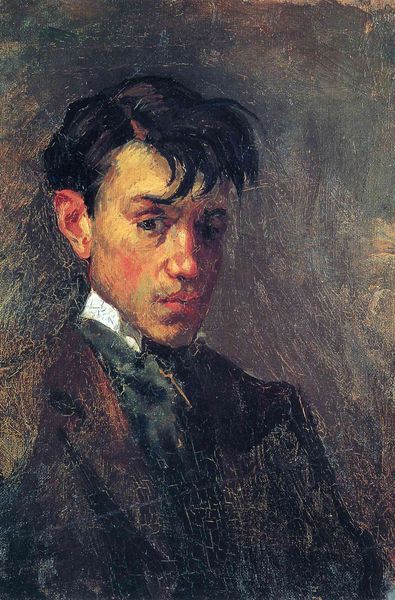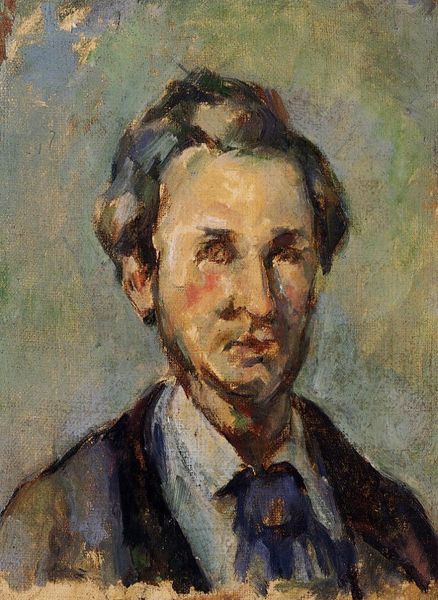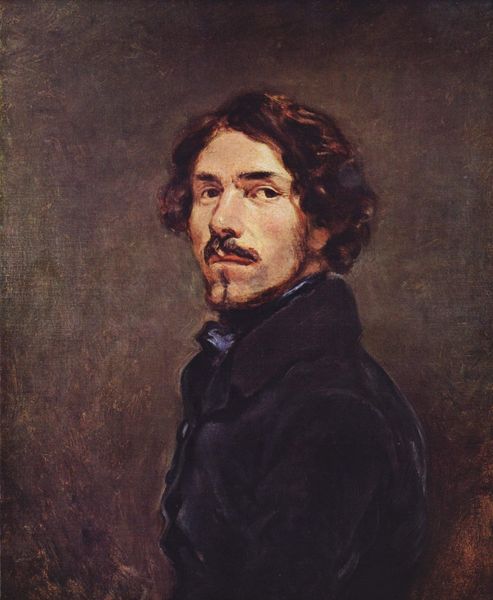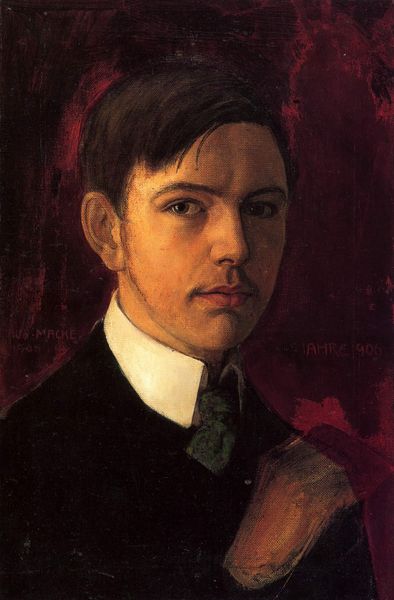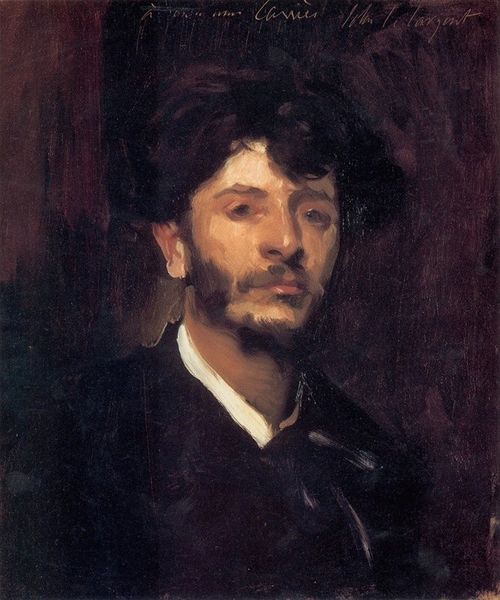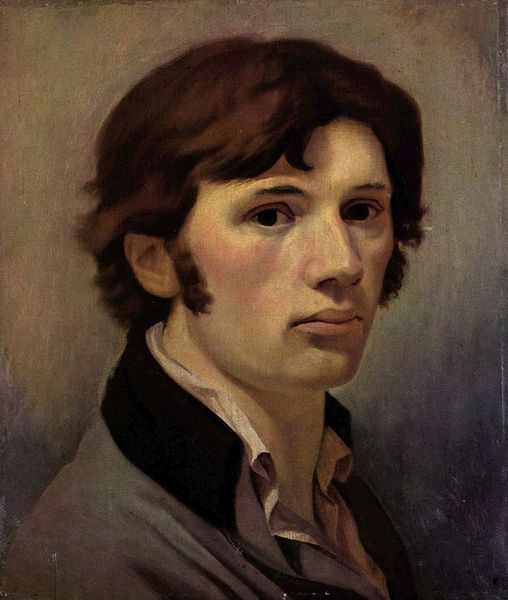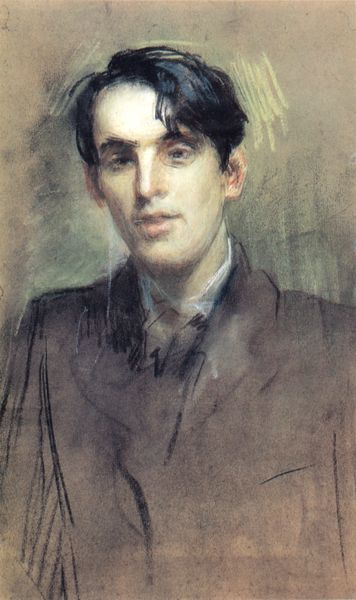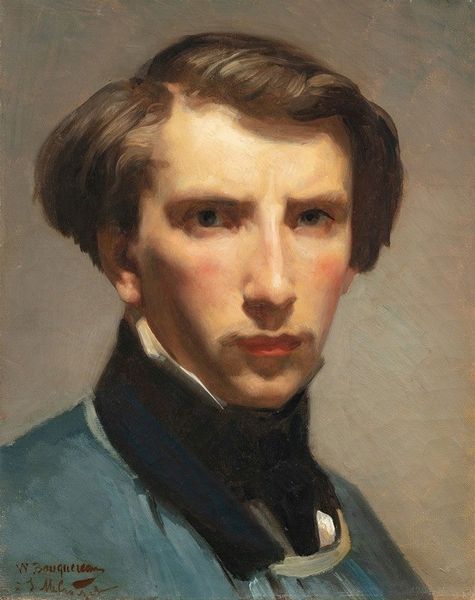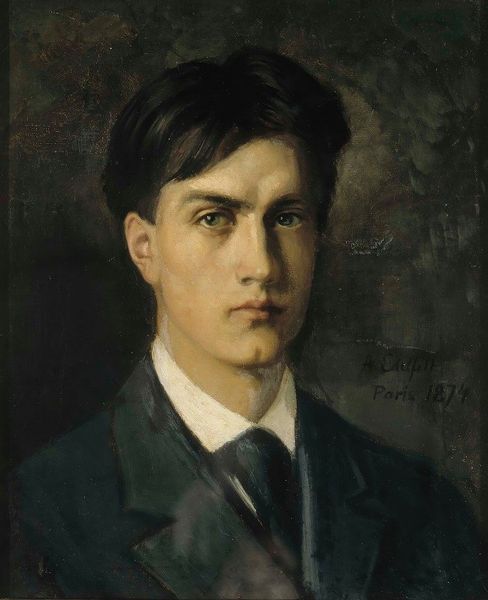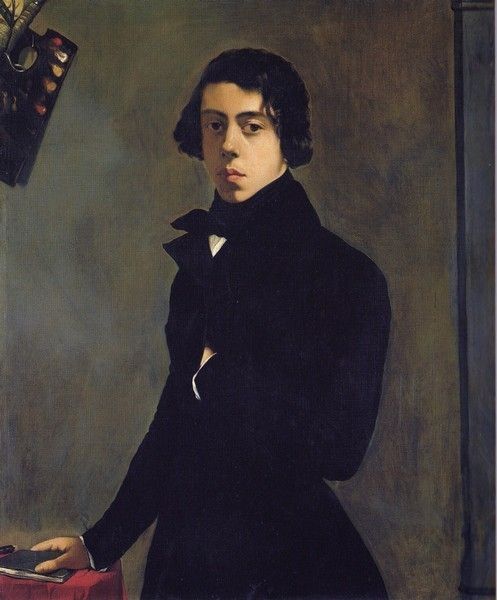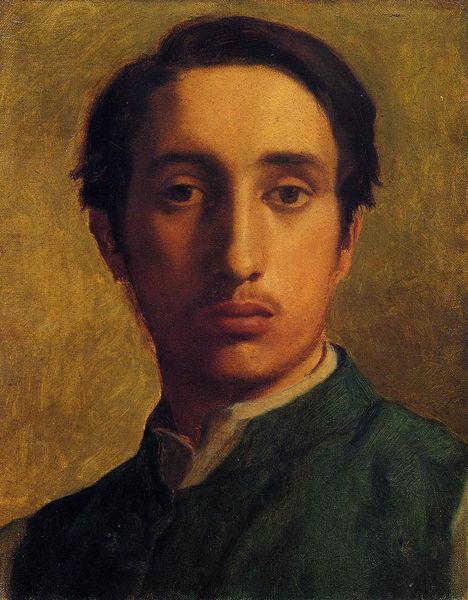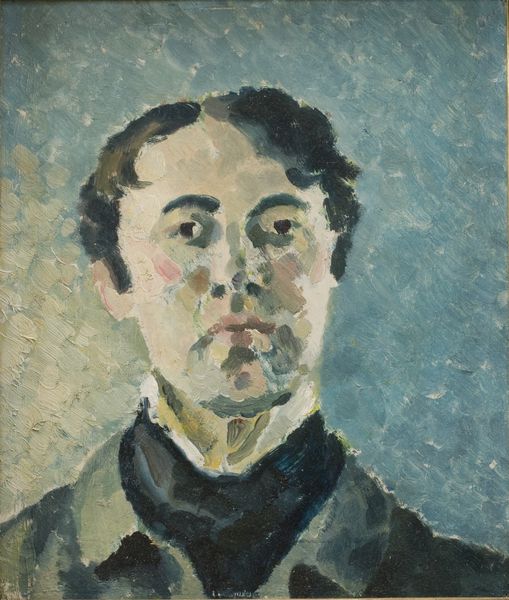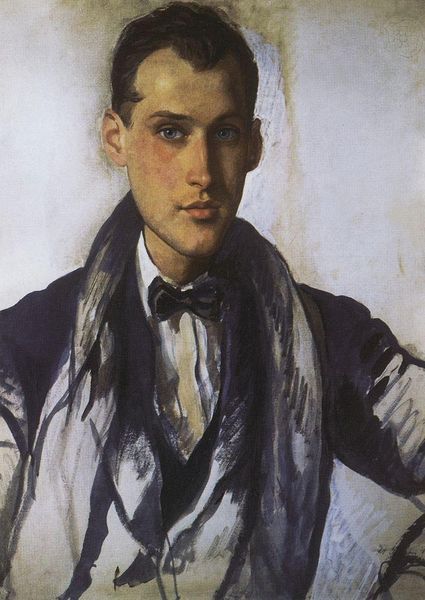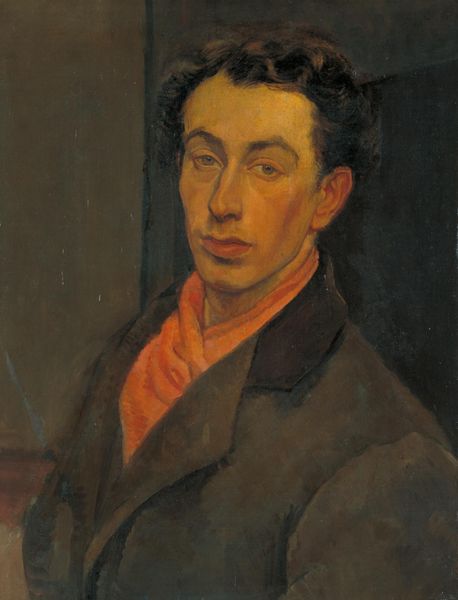
painting, oil-paint
#
portrait
#
portrait image
#
portrait
#
painting
#
impressionism
#
oil-paint
#
portrait reference
#
male-portraits
#
portrait head and shoulder
#
animal drawing portrait
#
portrait drawing
#
facial portrait
#
post-impressionism
#
portrait art
#
fine art portrait
#
digital portrait
Dimensions: 54.4 x 43.5 cm
Copyright: Public domain
Henri de Toulouse-Lautrec painted this oil on canvas portrait of the artist Emile Bernard in France at a time of institutional change in the late 19th century. Toulouse-Lautrec's work, like this portrait, was often concerned with social interactions. What can a portrait tell us about the relationship between artist and subject, about their place in the Parisian art world? Note the dark hues, the loose brushstrokes, the somewhat melancholy gaze. Both artists were associated with Post-Impressionism, a movement that rejected the naturalism of Impressionism in favor of personal expression. Art history is not just about aesthetics, it's about understanding the complex web of relationships, influences, and institutions that shape artistic production. By studying letters, exhibition records, and contemporary criticism, we can gain insight into the social and cultural context of this portrait. What role did networks of artists play in Paris at this time? How did galleries shape the market for art? These are some of the questions we can ask to understand the historical meaning of art.
Comments
No comments
Be the first to comment and join the conversation on the ultimate creative platform.
